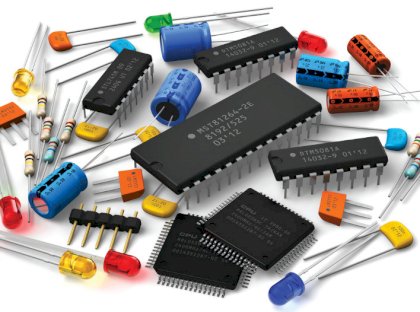Why VoIP Is Important for Small a Businesses?

Do you want to set up the telephone system to grow up your business? And you don’t have any idea how to do this or what will be the function and features of various types of telephone systems that are available in the market? Then you are at the right place. Here we are to guide you with all type of information.
Basically business telephone systems connect all of the phones and other communication devices used by a business area to each other and to the outer world.
Traditionally, a central hub unit widely recognized as a Private Branch Exchange or PBX control the business telephone systems. The PBX would route incoming and outgoing calls to the right department or specific line and enable to do conference calls between multiple phones.
In recent years VoIP has come and ruled the entire business telephone industry. The introduction of VoIP is revolutionary. VoIP stands for Voice over Internet Protocol. VoIP phone calls can be sent and received over the same Internet networks which manage email and instant messaging, bypassing the conventional analogue wired phone network and making businesses significant savings in both installation and ongoing service costs.
One of the major improvements afforded by VoIP, mainly for small to medium-sized businesses, is the shift from a reliance on expensive hardware PBX units located on the business premises to ‘virtual’, hosted PBX solutions which are hosted off-site in the cloud.
Not only do such hosted telephone system services invalidate the requirement for upfront purchase and installation costs of PBX hardware (that would also have to be housed on the business areas, potentially taking up valuable storage space)but the flexibility afforded by cloud phone services means which advanced features, quick and easy access to billing and administration and integration of a large amount of communication devices beside desk phones, from smartphones to tablets and desktop PCs can be delivered for a fraction of the cost of traditional phone service.
Why go for VoIP?
- Save cash – with greatly reduced prices for both local and international calls and no more installation or maintenance of bulky on-site hardware needed as your system is now hosted in the cloud.
- Simply increase – scale your VoIP phone system as your business grows at the pace which is right for you.
- Make a great impression with clients and customers – try to develop the level of customer satisfaction, quickly putting them to the appropriate contact and effectively responding to messages and queries using their favored channels wherever you are.
- Expand connectivity between team members – put together smartphones and other mobile devices so that your people can always communicate quickly and efficiently wherever they are.
What is SIP Trunking?
SIP (Session Initiation Protocol) Trunking is used to replace traditional fixed line analogue cabling and allow a dedicated network connection for voice and other communications data transfer.
SIP Trunks were invented to overcome potential bandwidth and quality arising from businesses sending voice data down the same network pipe as their other internet data (emails, web page surfing etc). By employing a dedicated network ‘trunk’ for voice data, call quality issue can be mostly prevented and an optimized service delivered.
The features of modern business phone system
Latest business telephone systems are something more than just a way to connect a few handsets together. A modern telephone system also usually incorporates a powerful software component, allowing the kind of features that until currently were the preserve of large corporations with huge budgets.
With this software interface, users and administrators can easily put together email, instant messaging and mobile devices to work seamlessly with their desk phones. With these conference calls can be done quickly and without fuss.
Handling the telephone system has become simple as logging into the software dashboard to permit user permissions add extra features and get detailed usage reports and billing statements.
- Advanced voice mail/ click to call – you can return calls with a single click or otherwise get any voicemail message sent to your email as an audio file attachment or transcribed text messages. You can also track missed calls from your email and return calls directly from your email interface with the ‘click to call’ feature.
- Online dashboard – handle your whole business phone system from a single software interface, with immediate access to contact databases, call logs and voicemail and the capability to painlessly arrange conference calls, direct incoming calls and program custom greetings and messages. Administrators can handle billing and simply add unique features to the systems on a month to month basis.
- Auto attendant – also regarded as a digital or virtual receptionist, Auto Attendant is an automated voice greeting and menu system which guides callers through many options in order to connect them to the right department or company representative.
- Interactive Voice Response (IVR) – a more superior greeting and routing system than Auto Attendant, IVR is ideal for managing high volumes of calls which include numbers and easy yes/ no answers. This IVR have also the facility to make use of caller ID information and put together it with earlier stored data.
- Automatic Call Distribution (ACD) – with its origins in the hunt group or line hunt feature found in older traditional PBX systems, Automatic Call Distribution (ACD) is useful for businesses which accept high call volumes. ACD distributes incoming calls between designated groups of operators or terminals depend on criteria like customer menu selection, their area code or the time of day the call is received.
- Barge-In – this feature provides multiple additional users to enter in-progress calls between other extensions (or between internal extensions and outide lines). ‘Barging in’ users can choose to become active callers or to easily listen in – warning tones can be used to aware existing users when barge-ins are taking place to prevent unwanted eavesdropping.
- Call Me Now – its much like the click to call to feature, Call Me Now provides customers to call your business directly from your businesses website, making customer engagement fluid, fast and simple across multiple channels.
- Call Recording – enable unique extensions or the whole team to record, download, playback and delete and incoming or outgoing calls.
- Day/ Night Mode – this is frequently used in conjunction with other system features like IVR, users can fix their phone system to route calls and implement various greetings depending on whether the call is accepted in the time of business hours (day) or when no agents are available (night).
- Conference Bridge – users can simply set up and join virtual meeting rooms from various locations and on multiple device types. VoIP service plans usually provide for 15-25 participants as standard and this can be added to as your requirements expand.
- Video Conferencing – inserting a video display feature to your conference calls is an easy addition with VoIP phone systems and adds an extra level of immediacy and ease of communication to meetings.
Selecting a phone system supplier
The suppliers can notice your ideal system factoring in any particular needs or features you ask for. They will also match the back-support equipments and software features with the most perfect desk phones, allowing you with a complete solution and the smoothest likely system and ongoing operation.
The key criteria to think about when selecting the best phone setup supplier for your business;
- Reliability
- Price
- Customer service
- Security
- Terms of service
- Satisfaction guarantee
For more superior installations many of the suppliers will also provide some kind of training for your staff to make sure they get the most out of the new system; all suppliers will also provide ongoing support and maintenance so you can rest guaranteed which your communications are in safe hands.
Selecting a phone system for an individual industry or work environment
Your business may have very specific needs for a new telephone system. In this case you need to consider when you have to choose the providers whether they have particular experience or expertise working with specific industries. Try to install the right telephone system for your business. You can consult with the providers about their type of service and is it suitable for your business or not.






































